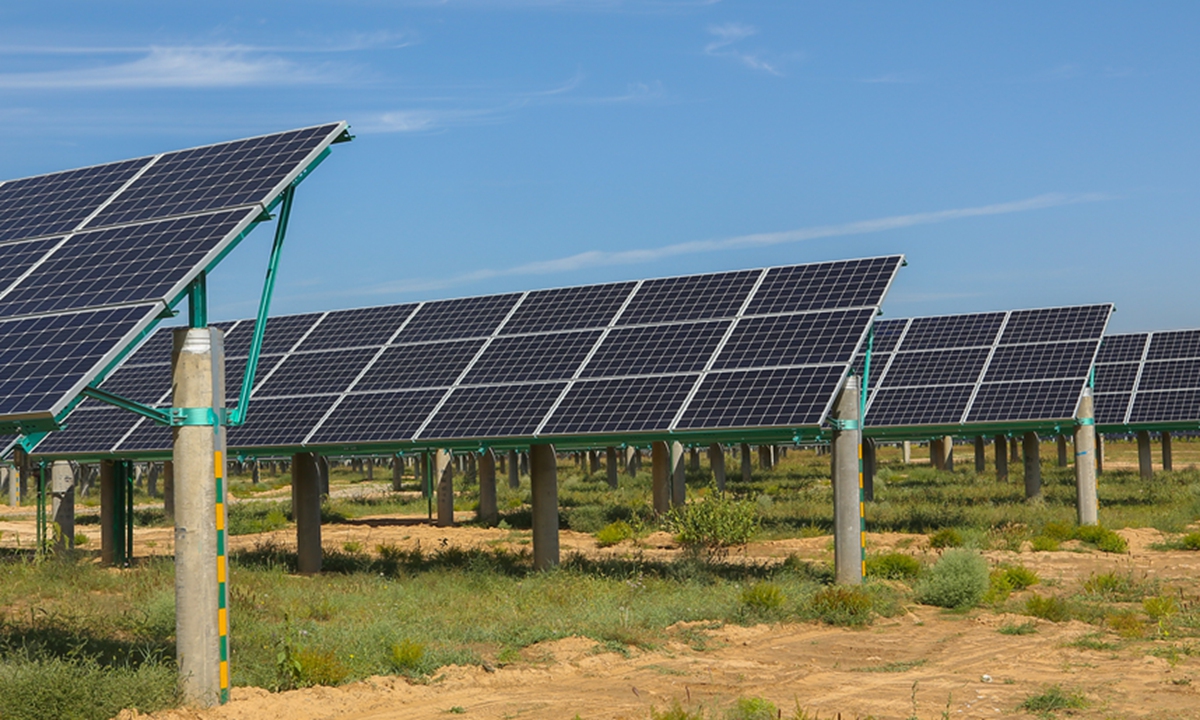
Solar panels at the solar power station of Panda Green Energy, in Datong, Shanxi Province. Photo: Courtesy of UNDP China
Members of the Association of Southeast Asian Nations (ASEAN) are seeking to strengthen cooperation with China on green energy and carbon markets, officials said at a roundtable on the Belt and Road Initiative (BRI) Green Development.
The meeting, hosted by the BRI International Green Development Coalition (BRIGC), will contribute to low-carbon cooperation in fields like energy, transportation and finance between China and member countries of the ASEAN, as well as promoting the implementation of biodiversity protection, analysts said.
The meeting came after several major renewable energy projects were unveiled at the 15th meeting of the Conference of the Parties to the Convention on Biological Diversity (COP15).
Liu Hongpeng, director of the Energy Division at the United Nations Economic and Social Commission for Asia and the Pacific (ESCAP), said that ASEAN countries should strengthen the connectivity of clean energy with China, in order to make good use of renewable energy including hydropower, solar energy and geothermal energy and reduce the cost of electricity generation.
Liu added that ASEAN member countries are rich in clean energy resources, but these resources are typically located in remote and sparsely populated areas. Moreover, energy supply and peak demand are often not well balanced; therefore, the connectivity will ensure the effective use of clean energy, which would help promote low-carbon development of members, especially Laos, Thailand, Malaysia and Singapore.
ASEAN has established market rules for multilateral power trade and now is looking forward to strengthening the connectivity with China, in order to jointly promote the green development of the BRI, Liu added.
Grace Fu Hai Yien, a senior official from Singapore said that the city-state is willing to share its experiences with China on operating a carbon market, after the latter launched the world's largest carbon market in 2021. Fu added that Singapore will establish a carbon market named Climate Impact X, in order to reduce the emission by enterprises.
Global Times




